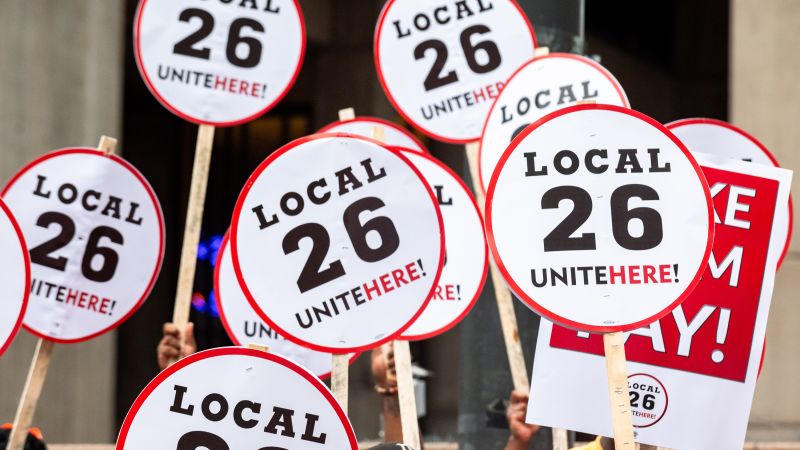Over 10,000 hotel workers at 24 hotels across the country, from Boston to the West Coast to Hawaii, went on strike during the busy Labor Day weekend. The hotels remain open, but guests are facing limited services as a result. The union representing the striking workers, Unite Here, is demanding better pay and improved working conditions, such as the return of daily room cleaning services that were dropped during the pandemic. The union cites the disparity between the record profits of the hotel industry and the struggles of workers and guests as a reason for the strike.
One hotel worker, Aissata Seck, shared her story of struggling to afford rent on her current pay as a banquet food server. She has seen her rent increase significantly over the past few years, to the point where her income only covers her housing costs. To make ends meet, Seck has taken on additional work as an Uber driver. The lack of daily room cleaning not only impacts the jobs of union members but also increases the workload for cleaning staff who now have to tend to rooms that have not been cleaned in several days.
The hotels facing striking workers include major chains such as Hilton, Hyatt, and Marriott, with a total of 23,000 rooms spread across cities like Boston, San Diego, San Francisco, and others. The union is considering expanding the strike to 65 hotels in 12 cities, potentially adding locations in Baltimore, Oakland, Providence, and New Haven. Both Hilton and Hyatt have expressed a commitment to negotiating fair contracts with the union while continuing to serve customers during the work stoppage.
Last year, the same union went on strike at 65 hotels in Los Angeles and Orange counties over the July 4 holiday weekend. Although the strike ended after a few days, subsequent rolling strikes occurred throughout the year. The current strikes are set to last three days, similar to the Los Angeles stoppage, with the possibility of returning on a rolling basis. The union did eventually reach agreements for most of the hotels targeted in the previous strike, although these deals were not finalized until earlier this year.
The Labor Day weekend saw a surge in travel, with AAA predicting a 9% increase in domestic travel compared to the previous year. The Transportation Security Administration also reported record passenger screenings at US airports. Despite the disruptions caused by the hotel worker strike, the industry is still experiencing high demand, reflecting the ongoing challenges and tensions between workers and employers in the hospitality sector.














